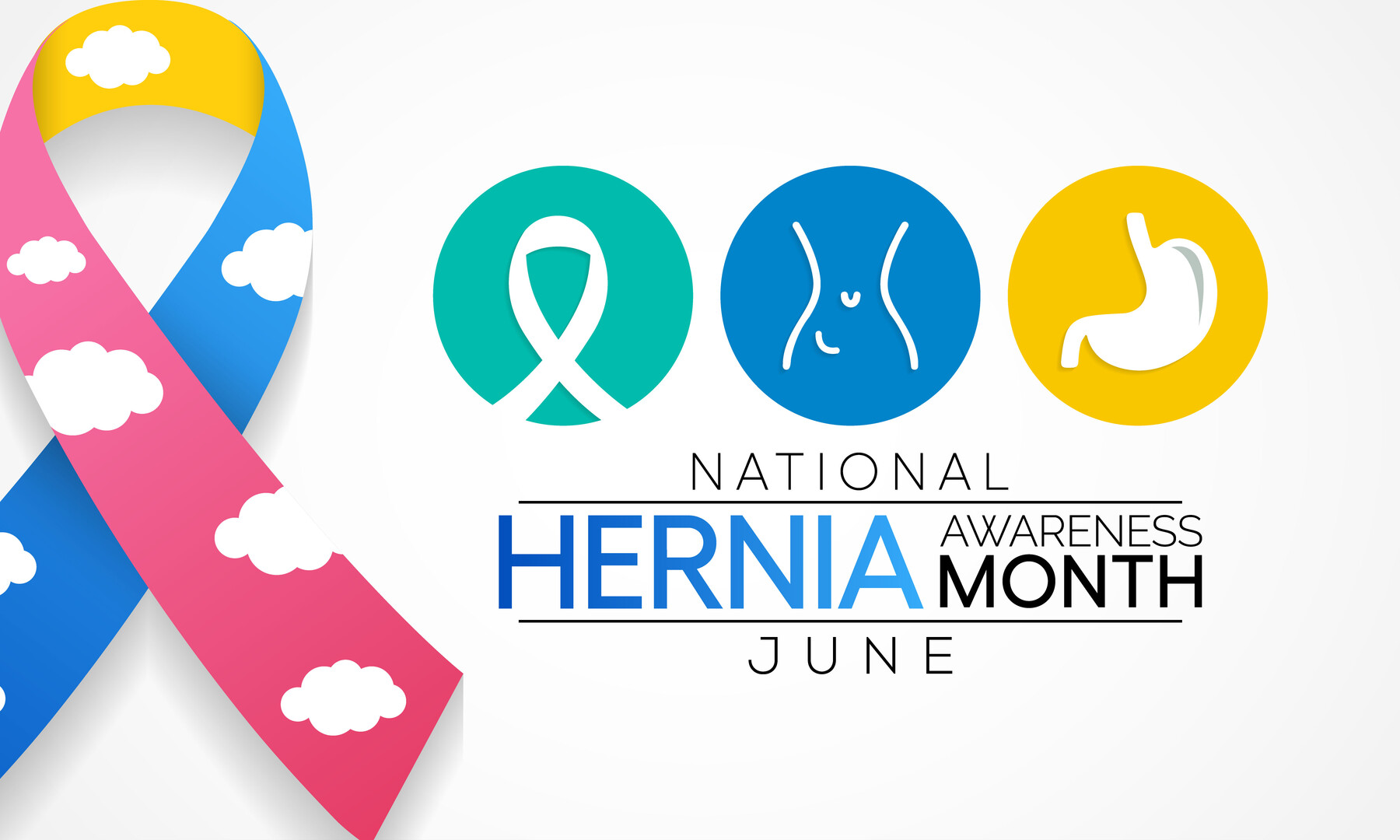~by Carol Vartuli
Hernia is a common, yet commonly misunderstood word. Simply defined, hernia is a condition in which an organ or body part, such as the intestine, protrudes through an opening in the body structure that normally contains it (The American Heritage Science Dictionary)
Millions of Americans live with hernias, but only a small portion of them seek medical attention. National Hernia Awareness Month is dedicated to increasing public understanding of this condition.
A hernia can occur anywhere in the body, but especially in the abdominal wall. Hernias can be acquired from weight gain, childbirth, or muscle strains. They can also be present at birth (congenital).
If a hernia is small and can be pushed back inside the body, surgery may not be required; however, a hernia can become an emergency if the protruding tissue or organ becomes trapped.
Types of Hernias
There are at least nine different types of hernia, but the most prevalent are umbilical, inguinal, and hiatal.
Umbilical hernias are usually congenital. According to the Cleveland Clinic, one in six children are born with an opening in the stomach wall that a piece of intestine can push through. Umbilical hernia is characterized by a bulge over or above the belly button. About 90 percent of umbilical hernias in children heal on their own. If not, surgery by the age three or four can prevent any future complications.
Adults, too, may get umbilical hernias from straining the abdominal area, being overweight, having a long-lasting, heavy cough, or giving birth.
Inguinal hernias are most common in certain age groups. In children, they typically occur between birth and five years. In adults, inguinal hernias occur most frequently between ages 75 and 80 because age increases the chance of developing one.
The National Institutes of Health estimates that 27 percent of men and 3 percent of women will develop an inguinal hernia. Symptoms of this hernia include a bulge in the groin (between abdomen and thighs), a bulge in the male scrotum, or discomfort, burning, pain, or heaviness in the groin.
Hiatal hernias differ from other hernias because they are caused by a weakness or opening in the diaphragm, the muscle that separates the chest cavity from the abdominal cavity. This can allow acid from the stomach to enter the esophagus (acid reflux), resulting in heartburn and even erosion of the esophagus. Another symptom may be chest pain, and patients should seek immediate medical attention for that.
Age and pressure on the abdomen may contribute to a weakened diaphragm. Hiatal hernias develop in people of all ages and both sexes, but more in people age 50 and older. They occur more often in people who smoke or are overweight. But many people with hiatal hernias have no symptoms and don't need treatment. People who suffer from acid reflux should first follow a treatment plan for gastrointestinal disorders.
Symptoms and Treatment
Typical symptoms of any hernia include a visible lump, burning sensation, pain when lifting items, or a feeling of weakness or pressure.
Only umbilical hernias in children can resolve on their own. Small hernias may never need surgery, but hernias that grow larger or cause pain and discomfort likely need repair. All hernias require surgical repair if they cause complications. Older adults can consider home care and rehabilitation after surgery.
When a hernia traps intestines in the abdominal wall, the tissue is ‘incarcerated.' If the blood supply becomes cut off, the trapped tissue is 'strangulated' and that can lead to tissue death. Fever, pain, nausea, and discoloration of the hernia may occur and become a surgical emergency.
Prevention
Fortunately, there are preventive measures that can help you avoid hernias. According to the
Cleveland Clinic, they include:
- Maintain ideal body weight by eating a healthy diet and exercising.
- Eat enough fruits, vegetables, and whole grains to avoid constipation. Learn about nutrition for healthy aging.
- Use correct form when lifting weights or heavy objects. Avoid lifting anything beyond your ability.
- See a doctor when you are ill with persistent coughs or sneezing.
- Don’t smoke, as the habit can lead to coughing that triggers a hernia.
The information in the above article is not intended nor implied to be a substitute for professional medical advice, diagnosis, or treatment. Always seek the advice of your physician or other qualified health provider with any questions you may have regarding a medical condition.
